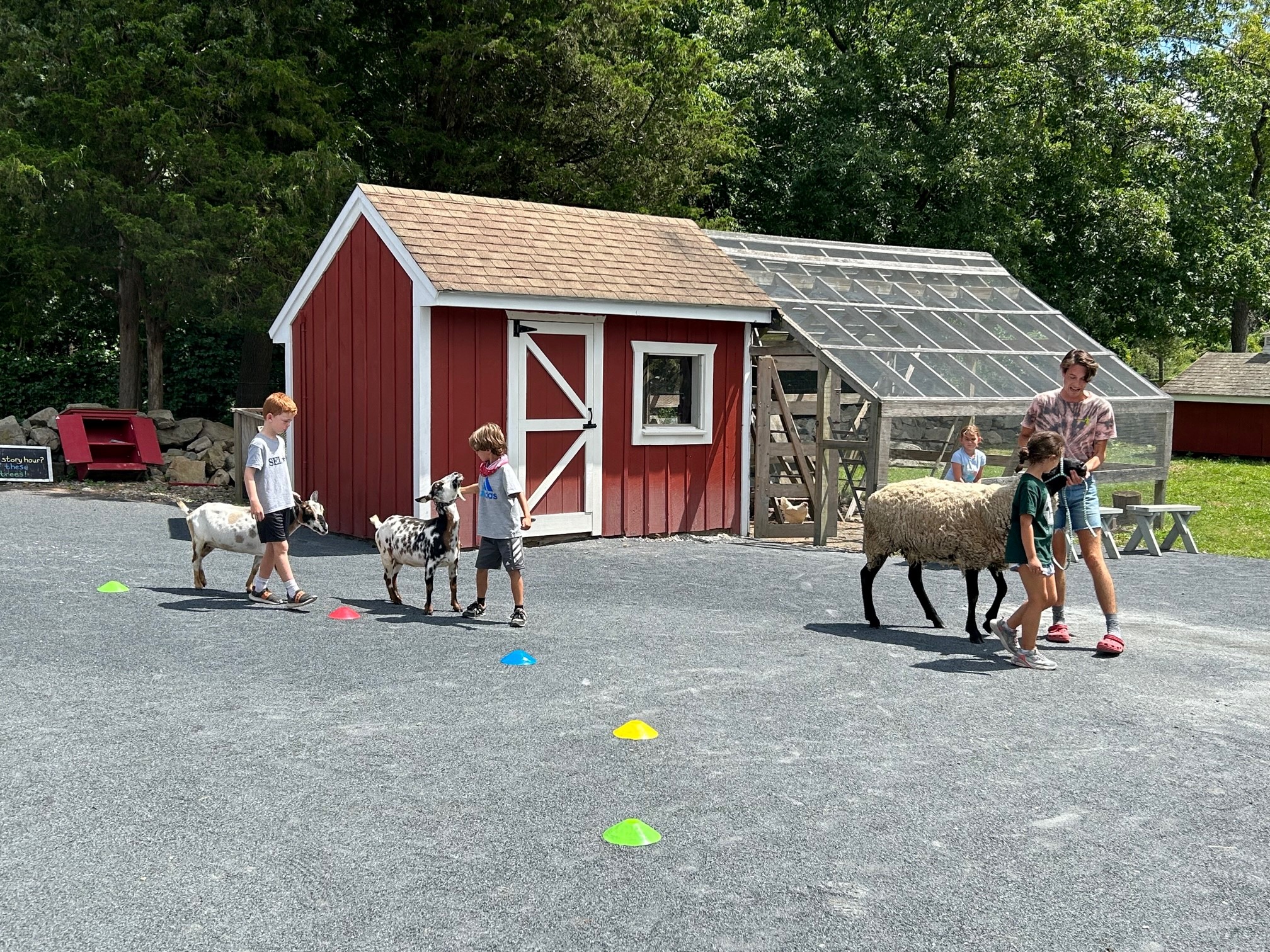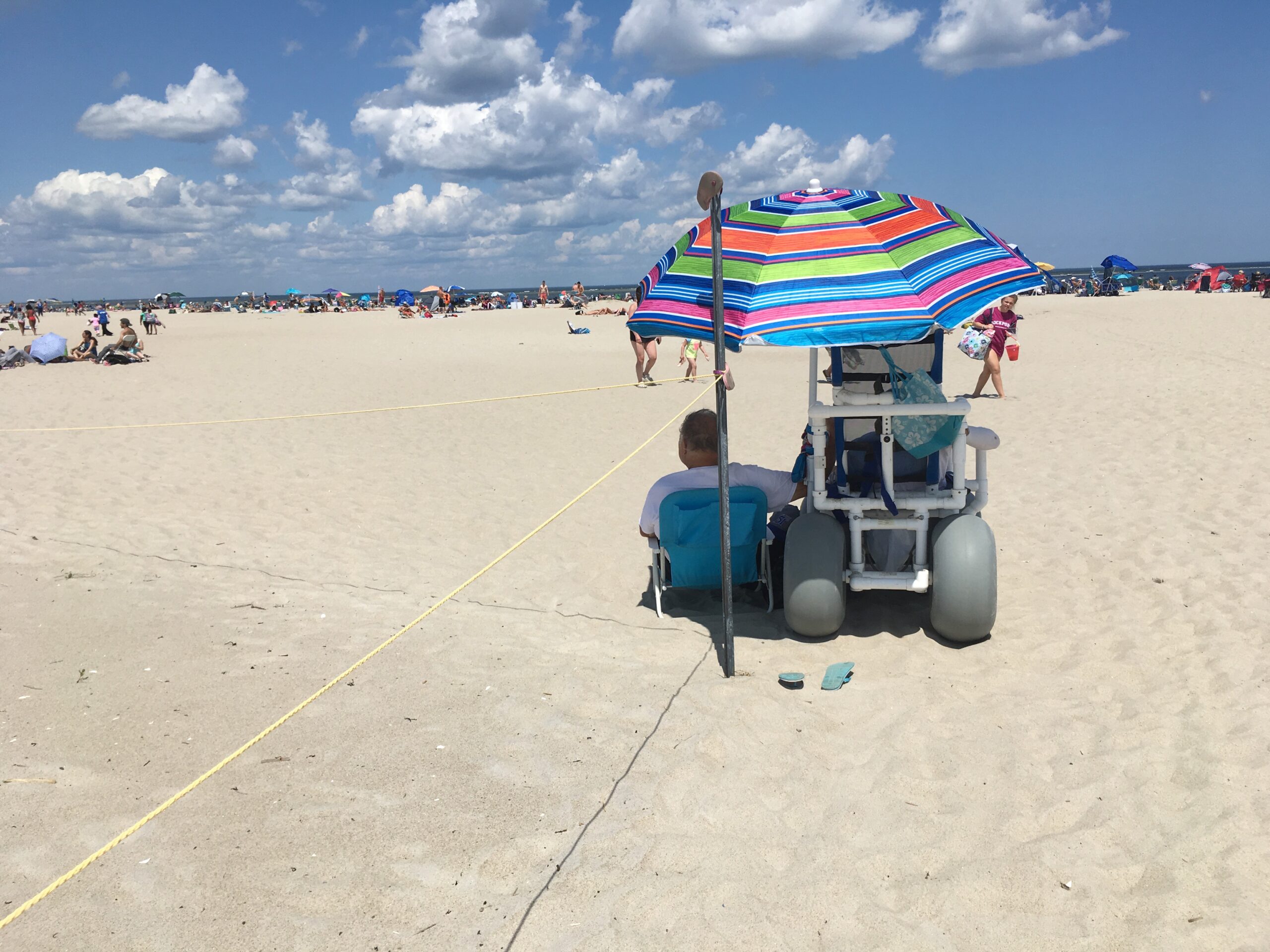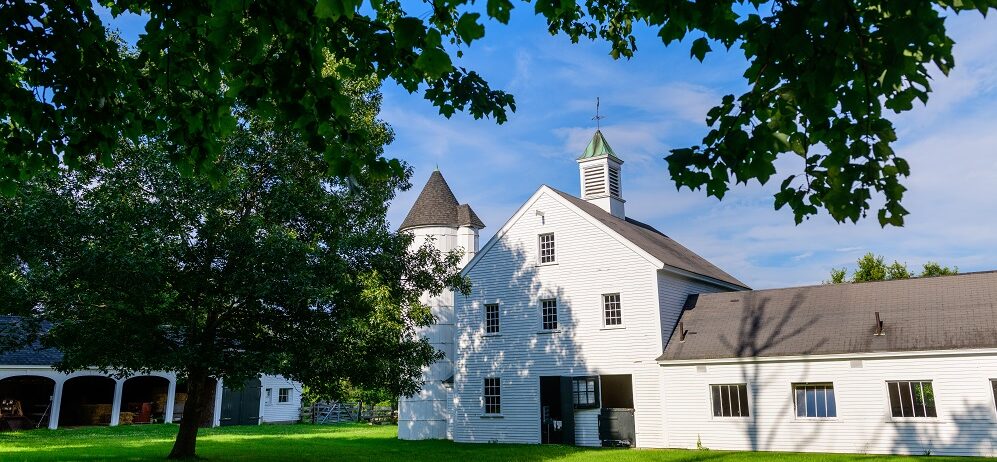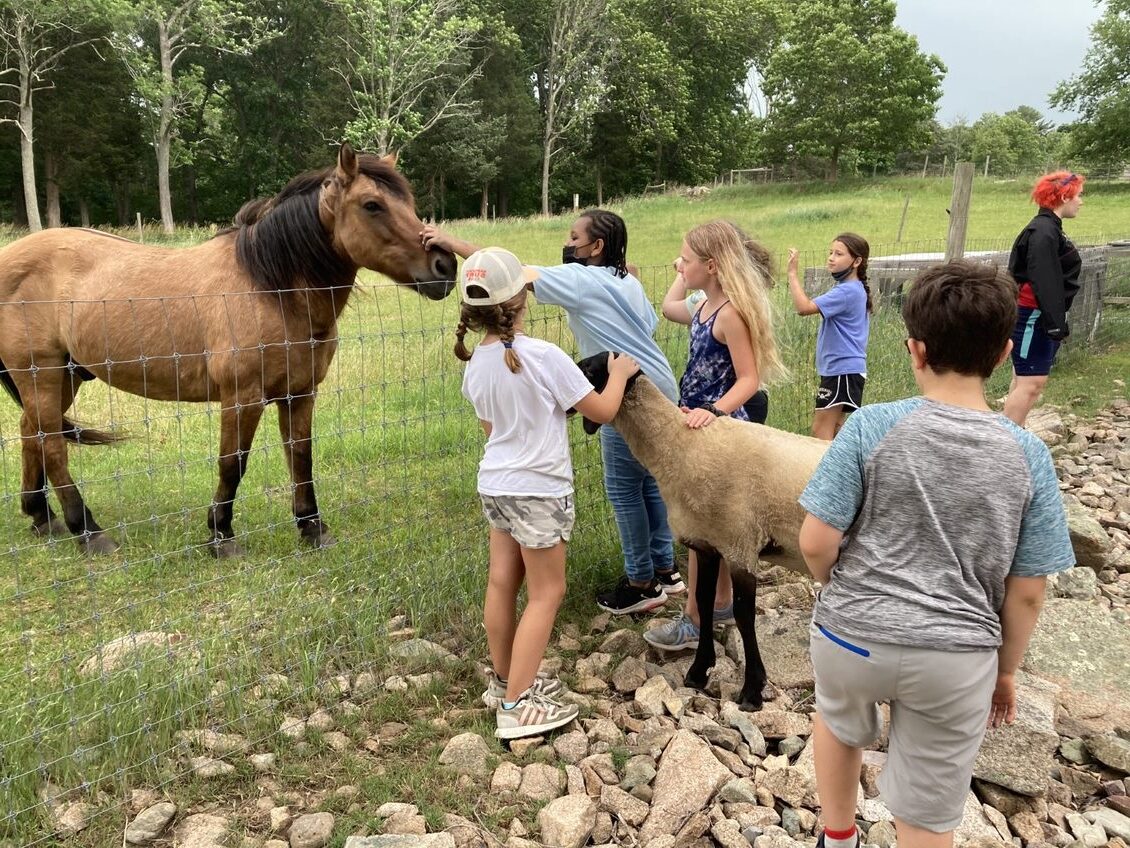Fall is a wonderful season for outdoor exploring, road trips, and adventures. For people eager to get outside together, a visit to one of the Trustees’ working farms, historic homes, beaches, or hiking trails can be a wonderful experience with family and friends. But for people with mobility challenges or other disabilities, a successful excursion often requires advance planning. Individuals who have difficulty walking over uneven ground may worry about their stability during a walk in the woods; people with sensory issues might feel overwhelmed by crowded spaces or loud noises.
As part of the Trustees’ ongoing work on accessibility initiatives, the organization is exploring and implementing new ways to make more of its reservations welcoming and accessible for people of different ages and abilities and making it easier for visitors to get the information they need to plan ahead.
Putting Feedback Into Action
When it comes to improving accessibility of Trustees properties and programs, communication is key. Mark Lindsay, Director of Visitor Experience and Americans with Disabilities Act (ADA) Coordinator, heads the Accessibility Working Group for The Trustees. One of the first steps the Working Group prioritized was to develop trainings for front-line staff about how to make the visitor experience the best it can be for people of all ages and abilities.
“One important goal is to improve transparency,” said Lindsay. Detailed information about accessibility issues, from accessible parking and restrooms to special programming is available on the Trustees website for every property. A downloadable map provides a visual aid to accessible properties. Feedback forms available online or on-site are designed to encourage visitors to share thoughts about their experiences.
“Through the feedback forms, we get a lot of constructive comments about accessibility issues from people who want to partner with us to make things better,” says Lindsay. “We’re striving to
develop more relationships with people who have lived experience to help serve as resources and consultants on these issues.”

The new accessible Grove Path at deCordova Sculpture Park and Museum. Courtesy: The Trustees
Accessible Trails
While it’s early yet in the initiative, a number of Trustees properties are leading the way in welcoming visitors with disabilities. A former equestrian estate, Doyle Community Park extends over 157 acres in the urban towns of Fitchburg and Leominster in central Massachusetts. Former bridle paths have been repurposed as walking trails, including a mile and a half of wheelchair-accessible trails that lead visitors on a meandering loop through woods, fields, and over tranquil streams.
“Doyle is a model of how we do accessible trails,” says Lindsay, noting that several other properties are currently being retrofitted along the same lines, such as Armstrong-Kelley Park in Osterville.
The 216 rambling acres of meadows, forest, and seasonal wetlands of Mary Cummings Park in Burlington and Woburn can be explored through a network of accessible trails and boardwalks so that visitors with mobility issues can enjoy the abundant birds and wildlife that thrive in the park’s natural habitat.
For visitors looking to lose themselves in the sights, scents, and sounds of a peaceful garden, Stevens-Coolidge House & Gardens in North Andover—the former summer home of Helen Stevens Coolidge and her husband, diplomat John Gardner Coolidge—has a crushed bluestone pathway throughout the grounds, accessible railings, and a ramp to the terrace around the historic house. There are accessible parking spaces and restrooms, and an accessible picnic table located by the Ashdale Farmstand.
Sensory-Friendly Programming
For people on the autism spectrum, visits to unfamiliar places can be a source of uncertainty or anxiety. Weir River Farm in Hingham is one of the first Trustees properties to offer sensory-friendly programming to encourage and support neurodiverse children, teens, and adults. Visitors to the working farm will find calm kits with noise-reducing headphones as well as visual story guides that they can view online before the trip to get a preview of what to expect when they arrive at the farm. Some farm programs offer limited admission at certain times for visitors who might feel overwhelmed by crowds and noise.
The sensory-friendly programs at Weir River Farm are the direct result of a partnership with the Autism Alliance, an organization that provides support and resources for people with autism and their families. Partnering with people and organizations who have experience and expertise with disability issues has been essential as The Trustees continues to make progress on its goal to make properties more welcoming and accessible for people of all ages and abilities.
“We look at how the programming that we’re piloting at Weir River Farm is working and think about how we can expand that to other farm properties like Appleton Farms and Powisset Farm,” says Kristen Swanberg, Interim Vice President, Marketing & Engagement. “Programming has proved to be the strongest area where we can work directly with groups that support people who live with disabilities—such as through the Autism Alliance and ASL provider events and historic house tours—and connect with people in those communities.”

The accessible barnyard space at Weir River. Courtesy: The Trustees

An accessible chair at Crane Beach. Courtesy: The Trustees
Coming Features
At deCordova Sculpture Park and Museum in Lincoln, work is underway on a number of new accessible trails through the property that will allow visitors to explore even more of deCordova’s unique combination of art and natural landscape. While the museum’s indoor exhibition spaces are currently closed for renovation, the 30-acre sculpture park offers an extraordinary opportunity for visitors of all ages and abilities to experience a variety of modern and contemporary artwork in a natural setting. deCordova is proud to be a designated Universal Participant (UP) organization, an accessibility program developed by the Massachusetts Cultural Council that recognizes the power of inclusive design to grow audiences and enhance cultural experiences for all.
Copicut Woods provides a gateway to the Southeastern Massachusetts Bioreserve, one of the largest protected lands in Massachusetts, whose more than 13,000 acres of pine forests and cedar swamps shelter nearly 100 species of birds. Located near the cities of Fall River and New Bedford, the property offers a unique opportunity to help urban families build lasting connections with the outdoors. In 2021, the City of Fall River and The Trustees received state grants to build an Accessible Nature Play Trail at Copicut Woods and to create a 20-mile Loop Trail through the Bioreserve for hikers, runners, and cyclists. Extensive planning is underway, and the trail is due to open in the winter of 2024.
Jen Klein, the Director of Outdoor Experiences for The Trustees sees projects like Copicut Woods as an essential way to welcome visitors from different backgrounds and create multigenerational experiences for families. “It’s an opportunity to create truly inclusive spaces where kids can come with older caregivers and have a positive experience in the outdoors. Infusing nature play with accessibility, especially for families who live in places where they don’t have a lot of access to nature, is so important. Kids discover these magical places and develop connections to the natural world.”
Partnering with disability organizations and listening closely to visitor feedback can reveal the sometimes-invisible obstacles that keep people from feeling comfortable and welcome in natural spaces or cultural environments. “We have to ask ourselves ‘who’s not coming?’” Klein
explains. “What are the barriers for people with mobility challenges, for people with physical disabilities, older adults, or families with young children?”
Adaptive Equipment
Making changes to physical spaces and structures isn’t the only way to make a property more welcoming. The Trustees partnership with Waypoint Adventures, an organization that encourages people with disabilities to travel and explore the outdoors, has helped many to enjoy Trustees trails. In the year ahead, the plan is to expand the types of adaptive equipment available to visitors, as well.
Hiking poles provide additional balance and stability on trails for hikers and walkers. Beach wheelchairs designed to help visitors with mobility issues access the water’s edge are available at Crane Beach and at Long Point on Martha’s Vineyard, as well as golf carts and all-terrain vehicles to traverse long stretches of sand. And more Trustees properties are testing out adaptive bicycles and kayaks to expand the range of activities that visitors can enjoy on the trail or on the water.
Not every property can be made accessible for everyone. Retrofitting hilly paths and trails can be prohibitively expensive and adapting the narrow passageways or twisting staircases of historic houses isn’t always feasible. But The Trustees is well begun on a journey to create more places where people of all ages and abilities feel comfortable, acknowledged, and welcomed as they explore its rich natural and cultural landscapes.
For more information about accessibility at Trustees properties, please visit thetrustees.org/accessibility.
Sarah Lydon is a writer, artist, and gardener based in northern Vermont. She spent many years volunteering as a garden coordinator for the Trustees’ Boston Community Gardens.





